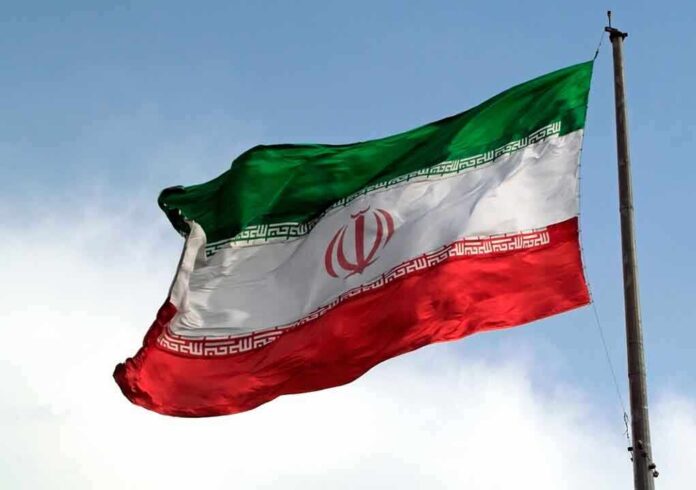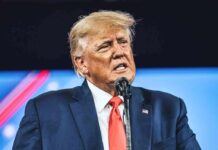The US and Iran conclude the fourth round of nuclear talks in Oman with plans for a fifth round, while fundamental disagreements over uranium enrichment remain a significant obstacle to reaching a comprehensive agreement.
Quick Takes
- The fourth round of US-Iran nuclear talks ended in Muscat on May 11, with both parties agreeing to continue negotiations in a fifth round.
- US envoy Steve Witkoff demands Iran dismantle its uranium enrichment facilities, while Iran considers enrichment non-negotiable but may accept limitations.
- President Trump has set a 60-day deadline to reach an agreement on Iran’s nuclear program, making this a time-sensitive negotiation.
- Omani Foreign Minister Badr Albusaidi described the talks as constructive with “useful and original ideas,” suggesting progress despite differences.
- The US aims to prevent Iran from developing nuclear weapons, while Iran maintains its program is for peaceful purposes only.
Talks Progress Amid Fundamental Disagreements
Iranian and US delegations concluded their fourth round of nuclear program talks in Muscat, Oman, on May 11, with both sides indicating they will proceed to a fifth round. US envoy Steve Witkoff and Iranian Foreign Minister Abbas Araqchi led their respective delegations in negotiations that Iranian Foreign Ministry spokesperson Esmaeil Baghaei characterized as “difficult but useful.” The discussions aim to establish terms under which Iran would restrict its nuclear activities in exchange for the lifting of economic sanctions imposed by the United States. Despite making progress, significant obstacles remain, particularly regarding Iran’s uranium enrichment capabilities.
The talks, which lasted approximately three hours, included both direct and indirect exchanges between the parties. A senior US official expressed optimism about the outcomes, while Omani Foreign Minister Badr Albusaidi noted the inclusion of “useful and original ideas” in the discussions. Oman has served as a mediator in these sensitive negotiations and will coordinate and announce the details of the upcoming fifth round once both sides have consulted with their respective leadership about progress made.
The United States may consider putting the military option back on the table if significant progress is not made in the fourth round of nuclear talks with Iran, scheduled for Sunday in Muscat, @i24NEWS reported, citing sources close to US envoy Steve Witkoff.
If the talks "are… pic.twitter.com/e4YgwrTYHe— Iran International English (@IranIntl_En) May 10, 2025
Uranium Enrichment Remains a Contentious Issue
The central point of contention continues to be Iran’s uranium enrichment program. US envoy Witkoff emphasized Washington’s demand for Iran to dismantle its uranium enrichment facilities, a position that represents a hardening of American policy. Previous administrations had shown willingness to accept limited enrichment, a stance that critics argued enabled Iran’s nuclear ambitions. The Trump administration has signaled a complete shift away from tolerating any level of enrichment, viewing it as an unacceptable risk to regional security.
Iran, on the other hand, maintains that uranium enrichment for peaceful purposes is its sovereign right and non-negotiable, though it may agree to certain limitations as a confidence-building measure. International inspectors have reported that Iran has enriched uranium to near weapons-grade levels, raising concerns about the true nature of its program. The Iranian government insists its nuclear activities are strictly for civilian energy and medical applications, despite mounting evidence to the contrary.
🇺🇸🇮🇷U.S. & IRAN MAY MEET FOR NEW NUCLEAR TALKS THIS WEEKEND IN OMAN
The U.S. and Iran are planning to restart nuclear talks this weekend, most likely on Sunday, May 11, in Oman's capital, Muscat.
The talks were originally supposed to happen on May 3 in Rome but got delayed… https://t.co/hWtR8XMafN pic.twitter.com/8Eh4A6x1SU
— Mario Nawfal (@MarioNawfal) May 6, 2025
Time Constraints and Regional Implications
President Trump has announced a 60-day deadline to reach an agreement with Iran, adding urgency to these discussions. The deadline underscores the administration’s determination to resolve the Iranian nuclear issue within a specific timeframe. Trump withdrew from the Joint Comprehensive Plan of Action (JCPOA) in 2018, reimposing sanctions on Iran with the stated goal of denying the Islamic Republic nuclear weapons capabilities. Preventing Iran from developing nuclear bombs remains a cornerstone of Trump’s Middle East policy.
The timing of these talks is particularly significant as President Trump prepares for a tour of the Middle East. Meanwhile, tensions in the region remain high, with Iranian Supreme Leader Ali Khamenei recently endorsing anti-American sentiments and criticizing Israel and its allies. Khamenei claimed that Gaza faces opposition not just from Israel but also from America and Britain, further complicating the diplomatic environment surrounding the nuclear negotiations.
Jason Brodsky, a regional analyst, observed that Iran appears more pessimistic about the talks compared to the United States. He noted that Iran values the negotiation process itself for its economic and strategic benefits, potentially using the extended discussions to buy time while continuing its nuclear development. As both sides prepare for the fifth round, bridging the gap on uranium enrichment will be crucial to any meaningful agreement that addresses American security concerns while providing Iran with economic relief.
Sources:
- https://www.reuters.com/world/middle-east/iran-agrees-fourth-round-indirect-nuclear-talks-with-us-sunday-2025-05-09/
- https://www.axios.com/2025/05/11/iran-usa-nuclear-deal-talks
- https://www.theepochtimes.com/world/us-iran-agree-to-continue-nuclear-talks-after-4th-round-of-discussion-5856206
- https://www.foxnews.com/world/4th-round-us-iran-talks-ends-trump-set-embark-historic-middle-east-tour











